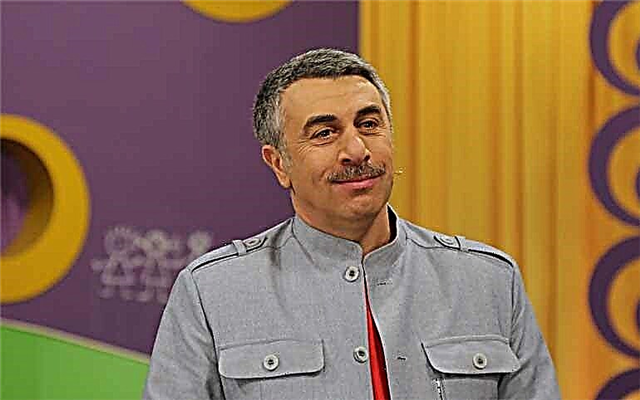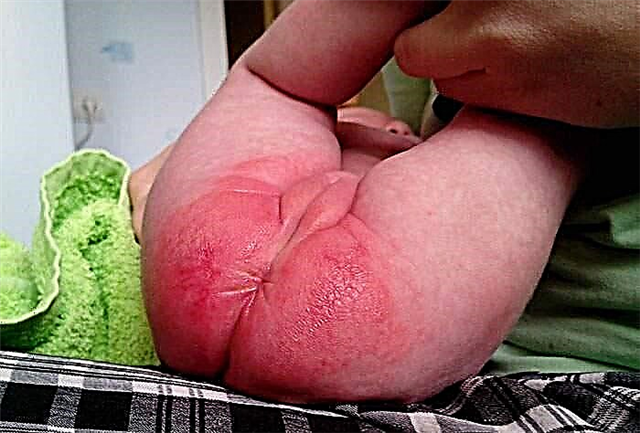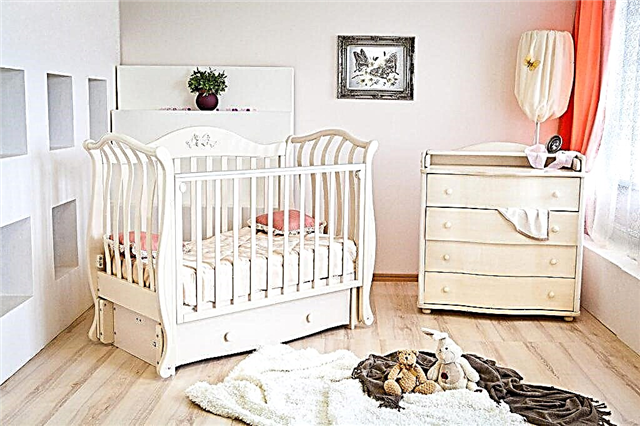
Memory is one of the necessary mental processes, without which the intellectual development of a child is impossible. Sufficient time must be devoted to its development in preschool age. It is with her help that the baby will be able to gain new knowledge, learning the world or studying at school, acquire the knowledge, skills and abilities he needs. In memory development classes, you will teach children to memorize, store and reproduce information using simple exercises and games.

Features:
For preschool children, mechanical memorization of information is characteristic, without comprehension. The task of adults is to teach a child to do this consciously, logically comprehending new knowledge. Involuntary memorization and reproduction of information should gradually move to a conscious one.

In the first year of a baby's life, motor memory develops, which is expressed in conditioned reflexes.
The baby is able to memorize movements and actions. This works especially well if they are accompanied by emotions (or if he understands the result of these actions). The kid learns to sit, stand, crawl, take any objects with his hands and much more.


Figurative memory develops up to two years. The toddler recognizes relatives and friends, smells, tastes, voices. At this age, the baby's nervous system is actively developing, the amount of information increases. At the age of up to 3 years, logical thinking is actively developing, vocabulary is expanding. We can already talk about the emergence of verbal-logical memory.


Mechanical memory develops up to about 4 years of age. It is characterized by the memorization of what the child is doing something with. If parents want a child at this age to better remember some information, you need to captivate him, interest him. The result will be much better in this case.
From the age of 5, we can already talk about the development of arbitrary memory. It is during this age period that the child can already use special techniques to better memorize information.

Types of memory
Depending on how long the information is memorized, on the object of memorization, on the degree of volitional regulation, memory is classified differently.
By the timing of memorization, the following types are distinguished:
- Short-term - in this case, the information is remembered with ease, but then it is forgotten.
- Long-term - the material can be played back even after a long time.
By the object of memorization, there are:
- Visual - when the picture is remembered (faces, surroundings, etc.).

- Auditory - there is a memorization of what was heard.

- Motor (motor). It is characterized by the memorization of various movements - depending on the circumstances: dance, baby crawling, hand work with cutlery.

- Emotional. If a child burns his hand with an iron, then he will no longer approach him, these emotions will help to learn the rule much better than any prohibitions of parents.

- Flavoring - memorizing tastes.

- Olfactory - memory for various smells.

- Tactile (tactile) - the baby remembers the sensations when touching various objects.

All these kinds of memory can be combined into one - figurative memory.
Verbal-logical - the ability to memorize words, appears in parallel with the development of speech.
By memorization techniques are distinguished:
- Mechanical - in this form, the meaning of the memorized material is lost, only something concrete is memorized. If these are words, then in the order in which they were proposed. If these are actions, then exactly in the sequence in which they were repeated. This type of memory is very much in demand when memorizing foreign words, recording and pronouncing them, and learning a dance.
- Logical - differs in memorizing the meaning of the learner. The material that needs to be remembered is thoroughly analyzed and divided into semantic parts. The main idea of each of them and the relationship between them is determined. With the help of all these techniques, the most important thing in the text, its essence, is highlighted and remembered.
According to the degree of volitional regulation, there are:
- arbitrary memory - to memorize the necessary material, you need to make an effort;
- involuntary - no effort is required, everything is remembered by itself.
Recommended games and exercises
There are several particularly effective, but simple exercises.
"What's wrong?"
5-6 objects are laid out on the table in front of the baby, and he is offered time to memorize them. After that, the baby must turn away from the table, and the presenter at this time changes places a couple of toys or removes 1-2. The child's task in the game is to restore the correct sequence or tell about what has disappeared from the table. The exact same game can be played with object pictures.

"Remember what happened"
Exercise does a great job of training long-term memory. Ask your child to remember and talk about what happened yesterday. Let him try to tell you everything in as much detail as possible.


Game "Names"
You can play this game when you are in line, on the way to the store, at any time - if there is a need to keep your child busy so that he or she is quiet. Ask him to name 5 names of boys, then five names of girls, then the game continues in the same order. At first, the baby will call the names of the people closest to him, then friends and acquaintances, but after that he will begin to remember those names that he has ever heard.

Tongue Twisters
Learning them helps not only to develop the speech of a preschooler, but also to train memory. Please note that this should be "by the way" - in the game, with free minutes. You can invite your child to arrange a competition who will do the job better. In this case, the winner must definitely get praise or some minor prize. Ask the baby to repeat the tongue twister after you, and the next day let him remember it.


Game "Words"
There are two options for the game.
- Have your child tell you a letter of the alphabet... Now start naming words with this letter one by one.
- Ask your baby to name a word... Then you need to name the word that starts with the last letter of the previous one. The game is very similar to the well-known game "Cities".

"The road to home"
When, during a walk with a baby, you have gone far enough from your home, you can offer him this exercise - let him show you the way home. Naturally, you strictly control this process. On the way, pay your baby's attention to little things that can be very useful when finding a road: shop signs, unusual trees, noticeable houses. Then the next time he will try to do everything on his own.


Herbarium
Going out with your baby, you can pick up different leaves and flowers, while pronouncing the name of each plant. At home, fold these leaves into an album and dry. After a while, you can examine them and ask the child to remember what these plants were called. Later you can use them in crafts.


"Name a couple"
This exercise helps in training associative (semantic) memory. Give your child a couple of words that are related in meaning: heat and summer, soup and lunch. Start with 5-6 pairs. Speak them clearly. Then ask the baby to repeat the second word in a pair, calling him the first. Gradually, the task can be complicated by offering more pairs.
"Repeat after me"
Tell the preschooler 10 words that are not related in meaning. Now let him try to remember the words that you said. This exercise is great for training auditory memory.

Retellings
Teach your toddler to retell a story he has read, watched a cartoon, heard a story. Before going to bed, ask to tell you about interesting events of the day. This exercise is good memory training.

"Remember and draw"
Give your baby 1 minute to look at the picture. He should try to remember her. After that, the picture is closed, and the child is invited to draw it, reproducing all the details as accurately as possible.


Tips
Many factors affect how your baby's memory will develop. Among them are nutrition, daily routine, lifestyle of your child, physical activity, time spent with parents. Helpful hints:
- Try to limit your intake of sweets and starchy foods. Replace this with healthy foods: various types of nuts, cereals, hard cheese, a variety of greens, seeds. It is very useful to eat fatty fish, vegetables, fruits and berries, liver, white meat.
- Observe the daily routine.

- The child should spend at least 2-3 hours in the fresh air, it is necessary for the enrichment of brain cells with oxygen.
- Be sure to put your baby to bed on time.even if he doesn't want to. By doing this every day at the same time, you will train the child, and gradually all problems with laying down will disappear. Daytime sleep is also desirable.
- Make sure your child is physically active. This can be outdoor games with friends, sports, dancing, cycling, skating or skiing. Try to limit the time they spend playing computer games or watching TV.

A baby's ability to memorize very much depends on how much time parents devote to him. Play educational games with him, read books, learn poems, tell him as much new and interesting things as possible, draw and sing songs. All this will contribute to the development of memory.
Play methods for developing a child's memory can be viewed in this video.



